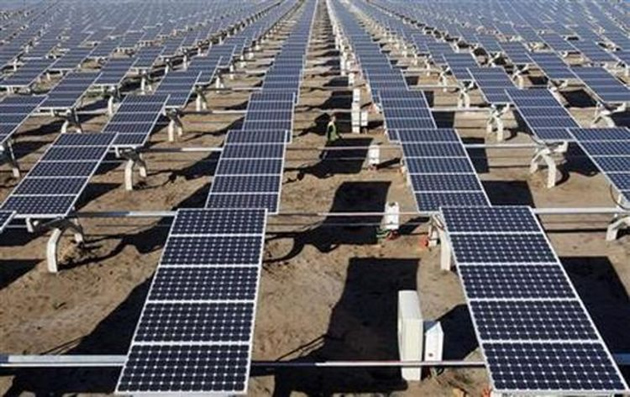EDITORIAL COMMENT: Harness solar, alternative energy sources

 Zimbabwe has been lax for decades to push policies that will significantly cut electricity demand by households and businesses while allowing ever growing standards of living and economic expansion, simply by using technology to make far better use of electricity and making far more use of one of Zimbabwe’s most abundant natural resources — sunlight.
Zimbabwe has been lax for decades to push policies that will significantly cut electricity demand by households and businesses while allowing ever growing standards of living and economic expansion, simply by using technology to make far better use of electricity and making far more use of one of Zimbabwe’s most abundant natural resources — sunlight.
Such policies are necessary on two main grounds: the cost of adding power stations and the need to minimise environmental damage, especially the need to minimise the emission of greenhouse gases.
So the recent ban on the import or manufacture of filament light bulbs, more than five years after lobbying started for such a policy, and now the proposed regulations banning electric geysers, more than 30 years after the old Solar Energy Society of Zimbabwe pressed such a programme, are welcome.
But while displaying the zeal of the recently converted, the Ministry of Energy and Power Development needs to ensure that changes do not increase problems. Sometimes this will require very careful thought when drafting new regulations.
The ban on filament lamp bulbs was simple. Existing stocks can be sold off and existing bulbs used until they fail. But within a year almost all will be gone and Zimbabwe will be using about 100MW less in the evenings, when there is peak demand of lighting than it would have been using without the technology change.
Those who resisted change will find that while energy saving bulbs are slightly pricier, the savings in electricity charges pay for the higher capital cost in a month.
The switch to solar geysers is not quite so simple. The first problem is that pure solar water heating, while better than nothing, tends to be inadequate on cold cloudy days, the exact time most people want more hot water. So the regulations should allow auxiliary electric heating. This is built in on the better solar heaters now on sale.
Regulations can ensure that the solar part of the geysers are kept in repair and that the electrical element only switches on when water temperatures are very low, or controlled by time-switches to work only between 10pm and 4am, so the auxiliary electrical heating remains auxiliary, not primary.
The second problem is the cost of retrofitting older houses and flats. Installing on new houses is not a problem and architects, planners and developers can ensure that roofs are adequate to support the load, roof pitches are optimised and the buildings are properly aligned.
The extra cost is low and with present electricity prices will pay for itself within a year or two. In any case the cost of a solar water heater is a minuscule fraction of a new building.
Retrofitting is more costly, especially if there are structural changes.
Many families will find the initial capital cost unaffordable, although in the end they will benefit financially as their power bills drop. A loan scheme will be needed, and an obvious way would be to have repayments through the pre-paid Zesa system and these set at a rate that keeps bills roughly the same, with the savings on the electricity cost being used to pay back the loan.
The ministry can go further. Air conditioning, for example, is becoming more common and more popular. Ruling that this must be powered by solar cells would make sense, and unlike water heating, no auxiliary electric power would be needed since the demand for electricity by a conditioner is aligned to the amount of sunlight.
Industrialists can make significant savings with modern control systems and if these cannot be made economically in Zimbabwe, then it should be imported duty free.
More use could be made of variable pricing, so processes that use a lot of power that can be moved to midnight rather than 8am are so moved.
The Ministry is now serious, but also needs to examine the financial and other impediments to its new policies as it moves rapidly to far more efficient use of electricity by consumers and far more use of solar and other alternatives.









Comments